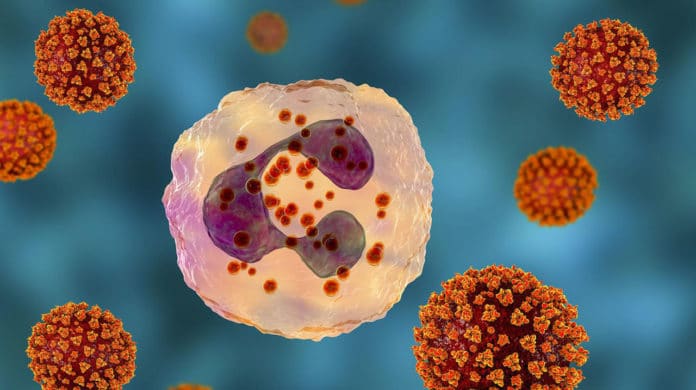Neutrophils are a type of white blood cell that helps heal damaged tissues and resolve infections. Despite being critical immune cells, neutrophils can exacerbate multiple diseases such as COVID-19.
Previous approaches to studying neutrophils are limited in specificity and effectiveness.
Now, EPFL scientists have identified the source of the problem and come up with an optimized model that addresses its shortcomings.
By endeavoring to deplete neutrophils in mice, the animals’ bone marrow delivers new neutrophils – which defeats the model’s whole reason. The scientists have now recognized these neutrophils and established that the reason they endure because they have a lower possibility of being targeted by the antibodies.
Scientists addressed this by developing a double antibody depletion strategy that enhances neutrophil elimination. Their approach increases the killing rate of the antibodies, resulting in a profound, specific, and long-lasting reduction in neutrophil numbers in blood and tissues.
According to scientists, this study could be useful to address the functional importance of neutrophils in acute or chronic infection, inflammation, or cancer.
Etienne Meylan at EPFL said, “In particular, transgenic mouse models of SARS-CoV-2 infection coupled to our standardized neutrophil depletion strategies may help establish a causal link between this innate immune cell type and COVID-19.”
The study was conducted in collaboration with Lausanne University Hospital (CHUV), Swiss Cancer Center Léman, INSERM France, Massachusetts General Hospital Research Institute, and University Duisburg–Essen.
Journal Reference:
- Gael Boivin et al., Durable and controlled depletion of neutrophils in mice. DOI: 10.1038/s41467-020-16596-9
